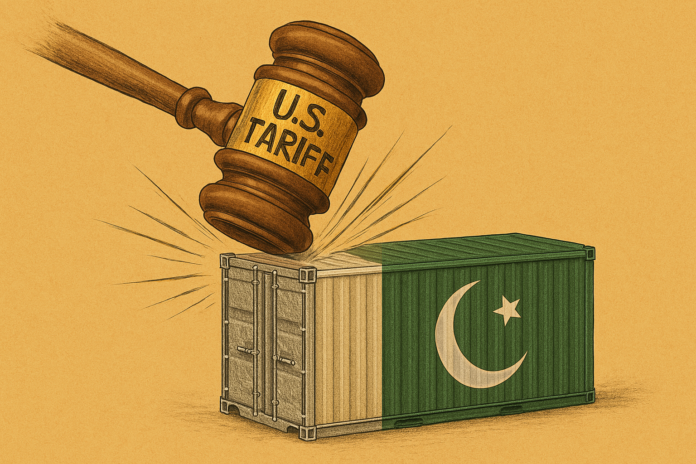Pakistan could suffer an estimated export loss of $564 million in fiscal year 2025-26 due to the imposition of new tariffs by the United States, according to a report by Islamabad-based think tank Tabadlab. The tariffs, announced by President Donald Trump, are part of a shift in US trade policy aimed at addressing its trade imbalance with Pakistan.
The textile sector, which constitutes more than half of Pakistan’s exports to the US, is expected to be the hardest hit. With US consumers highly sensitive to price increases, Tabadlab projects a potential 13% decline in demand for Pakistani goods by FY2025-26.
In a worst-case scenario, the country’s export losses could escalate to $2.17 billion if both market share and demand are severely impacted.
Trump’s decision, made on Wednesday, included a 90-day pause on the tariffs after more than 75 countries, including Pakistan, sought to negotiate. However, the US had earlier imposed a 29% tariff on Pakistani exports.
Despite the temporary pause, the Pakistani government has confirmed that a high-level delegation will still travel to Washington in the coming weeks to negotiate the new tariffs with US officials.
The report warns that these tariffs could reverse recent export gains, undermine current account stability, and further strain Pakistan’s already fragile economy. Pakistan’s total annual exports to the US currently stand at around $6.3 billion, and the new tariffs pose a significant challenge at a time when Pakistan is attempting to stabilize its external account and economic growth.
Trade data indicates that while Pakistan’s imports from the US amounted to $1.87 billion in 2024, making up only 4% of its total imports, the impact on Pakistan’s imports from the US is minimal. Key US exports to Pakistan include pharmaceuticals, machinery, and iron and steel. Despite this, tariff revenue from these imports is modest, amounting to just $85 million.
While countries like Bangladesh and Vietnam face even steeper tariffs, Tabadlab stressed that proactive diplomatic engagement, akin to Vietnam’s approach, could help Pakistan maintain or grow its market share in the US.
The report also highlighted the importance of services exports, which are unaffected by the tariffs but could become part of future trade negotiations.




